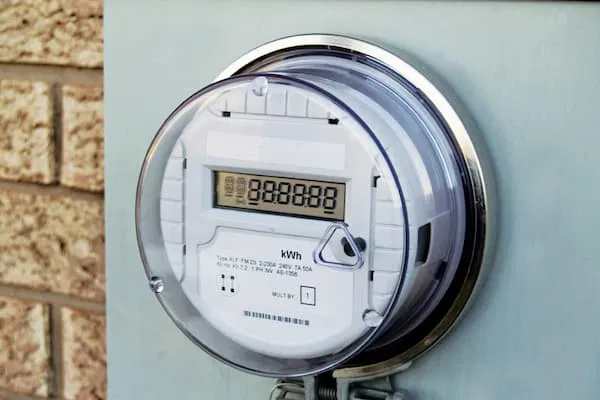When it comes to measuring electrical parameters like voltage, current, and resistance, choosing the right meter is crucial. The two main types of meters are digital meters and analog meters. Each type has its own advantages and disadvantages, making them suitable for different applications. This article will explore the differences between digital and analog meters, their benefits and drawbacks, and help you determine which one is better for your needs.
Understanding Digital and Analog Meters
Digital Meters
Digital meters, also known as digital multimeters (DMMs), display measurements on a digital screen. They use electronic components to measure and convert electrical quantities into numerical values. Digital meters are known for their accuracy and ease of use.
Analog Meters
Analog meters, or analog multimeters, display measurements using a moving needle on a scale. They work by measuring electrical quantities and translating them into a position on a dial. Analog meters are valued for their ability to show trends and changes in measurements.
Advantages of Digital Meters
- Accuracy and Precision
Digital meters are known for their high accuracy. They provide precise numerical readings, which reduce the chances of human error. This is particularly important when working with very small or large values where accuracy is crucial.
- Ease of Reading
The digital display on a digital meter makes it easy to read measurements. Numbers are clearly shown on the screen, so you don’t need to interpret the position of a needle or estimate values. This can save time and reduce mistakes.
- Automatic Ranging
Many digital meters have an automatic ranging feature that selects the best range for the measurement you are taking. This simplifies the process and helps you get accurate readings without manually adjusting the range.
- Additional Features
Digital meters often come with additional features such as data hold, auto power-off, and the ability to measure various parameters like capacitance and frequency. These features can make measurements more convenient and versatile.
- Data Logging and Connectivity
Some digital meters can store data and connect to computers or mobile devices for data analysis. This is useful for applications that require long-term monitoring or detailed analysis of measurements.
Advantages of Analog Meters
- Visual Trends and Changes
Analog meters are excellent for observing trends and fluctuations in measurements. The moving needle can give you a sense of how quickly a parameter is changing, which is useful in applications where dynamic changes are important.
- Durability
Analog meters are often more rugged and durable than digital meters. They have fewer electronic components that can fail, making them suitable for harsh environments or fieldwork where durability is a concern.
- No Battery Needed
Analog meters do not require batteries to operate, as they rely on mechanical movement. This means you don’t need to worry about battery life or replacement, which can be a significant advantage in some situations.
- Cost-Effective
In general, analog meters are less expensive than digital meters. If you need a basic meter for occasional use and don’t require advanced features, an analog meter can be a cost-effective choice.
- Long Battery Life
While analog meters don’t use batteries for operation, the ones with digital displays or additional features often have longer battery life compared to some digital meters.
Comparing Digital and Analog Meters
Accuracy and Precision
Digital meters excel in accuracy and precision. They provide exact numerical values and are less prone to human error. Analog meters can be less precise because reading the needle position can be subjective and affected by parallax errors.
Ease of Use
Digital meters are generally easier to use, especially for beginners. The clear digital display makes it straightforward to read measurements. Analog meters require more skill and experience to interpret the needle’s position correctly.
Maintenance and Durability
Analog meters are often more durable and require less maintenance. They are less likely to be affected by environmental conditions such as dust or moisture. Digital meters, on the other hand, may be more sensitive to such conditions and require more careful handling.
Features
Digital meters offer a wide range of features and functions, including automatic ranging, data hold, and additional measurement capabilities. Analog meters are simpler and typically focus on basic measurements without additional features.
Cost
Analog meters are generally less expensive than digital meters. If cost is a major factor and you only need basic functionality, an analog meter might be the better choice. However, for advanced features and higher accuracy, a digital meter may be worth the investment.
Choosing the Right Meter for Your Application
When deciding between digital and analog meters, consider the following factors:
- Application Needs
Determine what you need the meter for. If you require high accuracy, advanced features, or data logging capabilities, a digital meter is likely the better choice. If you need a basic, durable meter for fieldwork or simple measurements, an analog meter might be sufficient.
- Budget
Consider your budget. If cost is a major concern and you only need basic measurement capabilities, an analog meter can be a cost-effective option. For more advanced features and higher accuracy, a digital meter might be worth the extra investment.
- Environment
Think about the environment in which you’ll be using the meter. For harsh or challenging conditions, an analog meter’s durability might be advantageous. For environments where precise measurements are crucial, a digital meter’s accuracy and features may be more appropriate.
- Experience Level
Consider your experience level. Digital meters are often easier to use, especially for beginners. Analog meters require more skill to read and interpret correctly, so if you’re new to measurements, a digital meter might be more user-friendly.
Conclusion
Both digital and analog meters have their own strengths and weaknesses. Digital meters offer high accuracy, ease of use, and additional features, making them suitable for a wide range of applications. Analog meters provide visual trends, durability, and cost-effectiveness, making them ideal for specific use cases.
By understanding the differences between digital and analog meters and considering your specific needs, budget, and environment, you can choose the meter that best suits your applications. Whether you opt for a digital meter or an analog meter, having the right tool for the job will help you achieve accurate and reliable measurements.
Keep an eye for more latest news & updates on Internal Insider!










